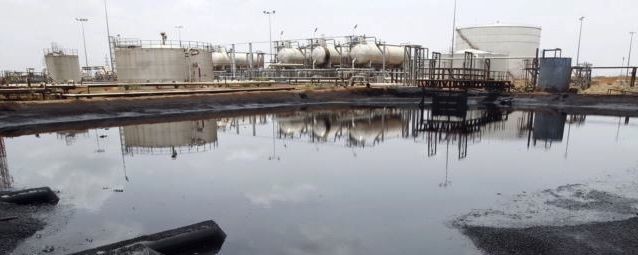South Sudan’s oil production is steady at about 160,000 barrels per day and will take time to recover to previous levels, an oil ministry official said, after oil facilities in Unity state were burned in fighting between political factions.
Production on Monday was 162,000 bpd from fields in Upper Nile state, said the oil ministry official who asked not to be identified. That level, little changed from the start of the year, is down about a third from the 245,000 bpd recorded before the conflict flared up in mid-December.
Oil facilities in Unity state have been shut since supporters of President Salva Kiir fought defectors who backed his sacked deputy, Riek Machar.
“They set the facility ablaze. It will take long to restart,” the official said.
Oil companies evacuated Unity state after some local oil workers were killed in the fighting as the defectors captured the capital Bentiu. Government forces have since recaptured the town.
The firms have yet to resume operations, however, while the government strives to ensure security and to assess the damage, according to a senior official at a foreign oil company.
“Right now the efforts to restart Unity production are going on, but until now the report (on the extent of the damage) is not finished. The paperwork to resume until now is not finished; there is no change there in security,” the senior official said.
“They (the government) don’t control all the oil fields there, so we hope this can change. But now it remains just a hope because with technical people, without security nobody will go there.”
Sporadic battles have been fought since a ceasefire deal was reached on Jan. 23, with some of the fiercest fighting in Malakal, the capital of Upper Nile state. But production from the Upper Nile fields has held steady.
Upper Nile fields produce Dar blend crude, which is a heavy and sour blend. The lighter and sweeter Nile blend produced from the Unity fields tends to sell at a premium to Dar.
The two blends usually go to Chinese and Indian refiners, which can process a variety of crudes. Some Nile blend is also shipped to Japan where it is burned by utilities.
Any variation in production of South Sudan’s crudes can impact the price of some other grades such as Indonesian, Angolan and some Australian crudes.
Oil firms in South Sudan, a country roughly the size of France, include China National Petroleum Corp, India’s ONGC Videsh and Malaysia’s Petronas .
All of South Sudan’s exports run via a pipeline through Sudan to the Red Sea. South Sudan split from Sudan in 2011, and the two nations have often argued since then over oil transit fees, border security and other issues.
(Reuters)
File photo: An oil processing facility is seen at an oilfield in Unity State, South Sudan, April 22, 2012 (Reuters)




